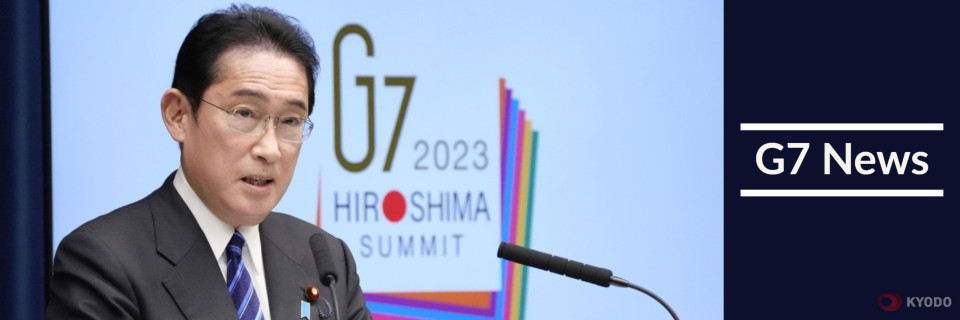The Group of Seven industrialized nations pledged Sunday to take measures to eliminate gender economic gaps by bolstering female empowerment, while acknowledging the negative impact of the COVID-19 pandemic on equality between men and women.
In a joint statement released after their two-day meeting in Nikko, Tochigi Prefecture, the G-7 gender equality ministers also agreed to continue working to realize a society where the human rights and dignity of sexual minorities are respected.
The ministers called unpaid care and domestic work -- disproportionately assigned to women -- "major obstacles" to "women's economic empowerment by impairing their ability to work full-time or in leadership positions," the statement said.

Technology and flexible labor times could be used as a means to amend the imbalance, it said.
"Women's full, equal, and meaningful participation in decision-making at all levels is a matter of human rights and it also benefits everyone by contributing to better economic, social, and political outcomes," it added.
The ministers from Britain, Canada, France, Germany, Italy, Japan, the United States plus the European Union called the pandemic "a serious setback" to achieving a gender-equal society.
"We reaffirmed our commitment to accelerating our efforts toward full gender equality and further empowering all women and girls," the statement said.
As for sexual minorities, the G-7 ministers said the rights and the safety of LGBT people are "under threat in many countries."
The gathering, also attended by members from international civil groups, was chaired by Japan's gender equality and women's empowerment minister Masanobu Ogura. The Asian nation has often been bashed for lagging behind other G-7 states in the field.
A survey by the World Economic Forum shows that Japan's gender gap ranking in 2023 hit an all-time low, placing 125th out of 146 countries. Its position was the lowest among the G-7 nations and the East Asia and Pacific region.
It was the first time for Japan to host the G-7 meeting regarding gender issues, with the country facing criticism from equality campaigners for what they view as government inaction over the low participation of women in politics and the economy.
Recently, Prime Minister Fumio Kishida has started to buckle down on narrowing gender gaps by setting a target for companies listed on the top tier of the Tokyo bourse to achieve a ratio of female board members exceeding 30 percent by 2030.
After a period of intense debate between the ruling and opposition parties, meanwhile, Japan's parliament earlier this month enacted legislation to promote understanding of LGBT people, with the primary aim of prohibiting discrimination based on sexual orientation.
Related coverage:
G-7 ministers meet in Japan to discuss women's empowerment post-COVID
FOCUS: Japan LGBT law watered down amid culture war on transgender issues
Japan falls to record-low 125th in global gender gap ranking











